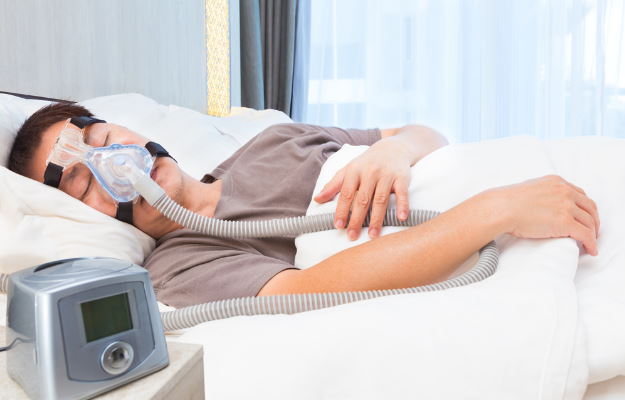How does Central Sleep Apnea Treatment Typically Begin, and What are the Initial Steps?
Central Sleep Apnea, often referred to as CSA, is a sleep disorder that can wreak havoc on one's daily life. Characterized by repeated interruptions in the breathing process during sleep, it poses serious health risks and can leave individuals feeling drained and fatigued throughout the day. Fortunately, there is hope, and the journey towards effective Central Sleep Apnea treatment in Houston typically begins with a few essential steps that can make a world of difference.
Understanding Central Sleep Apnea
Before we dive into the treatment process, it's crucial to comprehend what Central Sleep Apnea is. Unlike Obstructive Sleep Apnea (OSA), where breathing stops due to physical obstructions in the airway, CSA originates in the brain. The brain fails to transmit the proper signals to the muscles responsible for breathing, leading to temporary pauses in respiration. CSA can affect individuals of all ages, but certain risk factors, such as heart failure or living at higher altitudes, can increase its prevalence.

Recognizing the Symptoms
The first step in addressing Central Sleep Apnea is recognizing the symptoms. These can be quite subtle and often overlooked. Some common signs of CSA include:
- Frequent awakenings during the night.
- Chronic fatigue during the day, even after a full night's sleep.
- Difficulty concentrating and memory problems.
- Decreased libido.
- Shortness of breath, especially upon waking.
- Loud snoring or irregular breathing patterns while asleep.
If you or a loved one experiences these symptoms, it's time to seek help.
Seeking Medical Evaluation
The journey towards Central Sleep Apnea treatment begins with a visit to a healthcare professional. In Houston, there are numerous sleep centers and specialists well-equipped to diagnose and treat CSA. During your initial consultation, the healthcare provider will conduct a comprehensive evaluation. This evaluation may involve:
- A detailed medical history to identify potential risk factors and underlying causes.
- Physical examinations, including assessing your body mass index (BMI).
- Sleep studies, such as polysomnography, to monitor your sleep patterns and identify the presence and severity of CSA.
Based on the findings from these evaluations, your healthcare provider will determine the appropriate course of treatment.
Lifestyle Modifications
For some individuals with mild CSA, lifestyle modifications may be sufficient to alleviate their symptoms. These modifications can include:
- Weight management: Losing excess weight can reduce the severity of CSA, particularly if obesity is a contributing factor.
- Avoiding alcohol and sedatives: These substances can worsen CSA symptoms by relaxing the respiratory muscles.
- Elevating the head of the bed: Sleeping with the upper body elevated can help keep airways open during sleep.
It's important to work closely with your healthcare provider to ensure that lifestyle changes are tailored to your specific needs.
Medical Interventions
In more severe cases of Central Sleep Apnea, medical interventions may be necessary. Several treatment options are available, including:

- Continuous Positive Airway Pressure (CPAP): This device delivers a constant stream of air pressure to keep the airway open during sleep. While CPAP is commonly used to treat Obstructive Sleep Apnea, it can also benefit some CSA patients.
- Adaptive Servo-Ventilation (ASV): ASV devices are specifically designed for CSA. They monitor your breathing patterns and adjust the air pressure accordingly, providing a more personalized treatment approach.
- Medications: Certain medications, such as acetazolamide, may be prescribed to stimulate breathing in individuals with CSA.
- Oxygen Therapy: In some cases, supplemental oxygen may be administered to alleviate low blood oxygen levels during sleep.
The choice of treatment will depend on the severity of your condition and your individual needs. It's crucial to collaborate closely with your healthcare provider to find the most effective solution for you.
Follow-Up and Monitoring
Houston sleep apnea is a chronic condition, and treatment may be required for the long term. Regular follow-up appointments with your healthcare provider are essential to monitor your progress and make any necessary adjustments to your treatment plan.
These follow-up visits also provide an opportunity to discuss any issues or concerns that may have arisen during your Central Sleep Apnea treatment journey. Open communication with your healthcare team is key to ensuring the success of your treatment.
Conclusion:
Central Sleep Apnea can disrupt your life, but it doesn't have to control it. With the right approach, including seeking professional help, making lifestyle modifications, and potentially exploring medical interventions, you can manage your CSA and regain restful, rejuvenating sleep.
If you suspect you may be suffering from Central Sleep Apnea, don't hesitate to reach out to a healthcare provider in Houston. They can guide you through the treatment process, helping you embark on a journey towards improved sleep and a healthier, more vibrant life. Remember, a good night's sleep is within reach, and the path to relief starts with those initial, essential steps.
Comments
Post a Comment